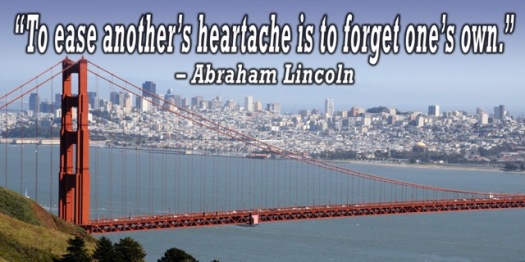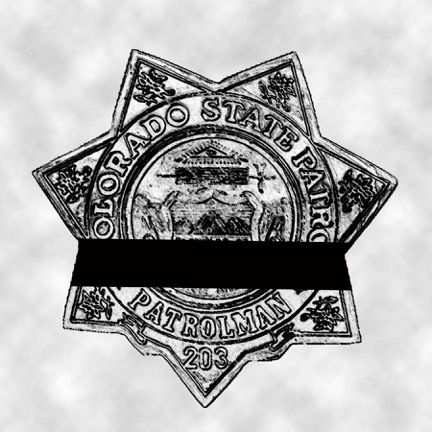
When you decide on a career in law enforcement, you agree to respond when you are called upon. Regardless of the time of day, despite the potential risks, by accepting the commission of your position, you agree to be more than just a witness. You agree to take action, to get involved, to put forth an effort to make a positive difference. I first learned this from watching my dad as he served as a patrolman in the Colorado State Patrol, and it was re-enforced in me as I too spent well over twenty-five years in federal law enforcement.
Yet, the most difficult call I ever responded to was when I received a call from a police psychologist and I was asked if I would talk to the wife and her children after their dad was killed in the Line-of-Duty. The only experience I had in psychology was a freshman level core class I was required to take in college. Moreover, I had stubbornly resisted all the efforts of my mom, who had a degree in counseling, when she had tried to get me to talk to professionals following the murder of my dad on his last call. To be absolutely honest, I had moved on from that tragedy and the last thing I wanted to do was talk about what had happened fifteen years ago with a psychologist.
Like most men, particularly men in law enforcement, I was extremely uncomfortable discussing my personal experiences dealing with the murder of my dad, especially with a mental health professional. Undaunted, the police psychologist explained that it was important for the them to hear from me, as it would help give the family hope that they too could survive this even though right now it felt like their lives had suddenly and tragically come to an end. Although the idea terrified me, and I honestly did not see how it could help, I reluctantly agreed to talk to the family with the psychologist. I was dumbfounded that God could have a plan to use me to help a family in this way, a way I would never have imagined, a way I unknowingly was uniquely qualified.
As so often happens, responding to this call led to a second call. This time the call was from an FBI Special Agent that was working with Concerns of Police Survivors, providing a workshop on “forgiveness” in conjunction with the National Peace Officers’ Memorial Service. As before, I reluctantly agreed to speak at his workshop, although I did not at the time appreciate how my story could help, let alone how it had anything to do with “forgiveness”. As before, this experience would lead to more trips, to more workshops, and the next thing I knew I had been asked to serve on the National Board of Concerns of Police Survivors.
As I look back today, I am astounded at the dramatic impact responding to this call from a police psychologist has had on my life. Through these experiences, I began to see that my perceptions of mental health professionals were misguided, as I was introduced to how mental health professionals helped regular, ordinary people that have experienced extraordinarily traumatic events. I also came to understand the far-reaching impact provided when people were just able to talk to someone who shared a similar experience, letting them know the emotions they were feeling were normal.
These experiences have shown me that although coping with tragedy is a deeply personal journey, one that may never be quite the same for any two people. Even though each experience can cause us to feel so intensely isolated, and feel that no one else could possibly understand what we are going through, there is hope. There is an extraordinary phenomena that takes place when people open up and compassionately share their own personal experiences with each other. When this happens, we somehow find comfort, which allows us to heal, and we begin down the path of becoming a survivor.
© C. Carpenter and Surviving December, 2017. Unauthorized use of this material without express written permission is strictly prohibited.

Gutsy blog in this day and age and glory be to the One who its really about. I recently lost my father, though I had mine much longer than you had yours; it’s just plain raw. Thank you for this timely post. I believe you will continue to touch many hearts with your words.
LikeLike
I am so sorry for your loss. I hope in time, the loving memories you have of your father will drown out the pain of his loss. My loving memories of my dad continue to be a source of resilience for me to this day. God bless…
LikeLiked by 1 person
Thank you! I appreciate your kind words.As you can see, it’s been awhile since ‘ve been online…blessings back1
LikeLike
Reblogged this on Surviving December and commented:
Updated with new quote and image.
LikeLike
Thank you for your comments, they are very much appreciated. I was blessed to recover many years ago, yet I felt it was important to express the feelings of the moments as I shared my story. As it so happens, my memories and how they impacted my focus on gratitude and resilience is the subject of the next blog I am about to post. I will be interested in what you think. God bless.
LikeLike